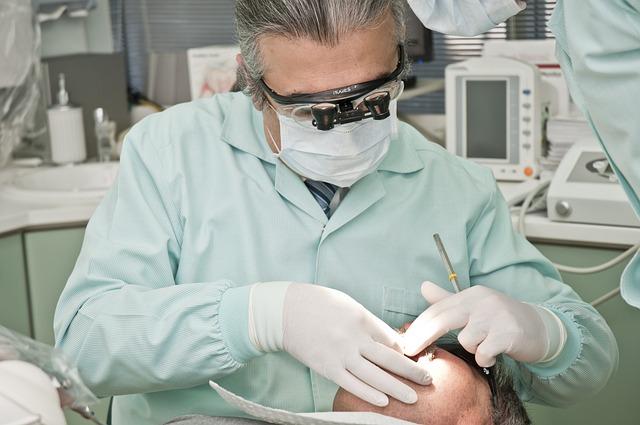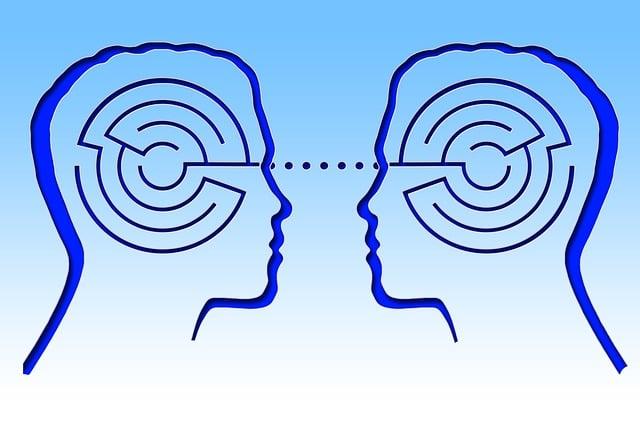Curious about what Bruxism means in Spanish? Unlock the secrets behind this common condition and gain a better understanding of the term.
1. Demystifying Bruxism: What Does It Mean in Spanish?
Bruxism, known as “rechinar de dientes” in Spanish, refers to the habit of grinding or clenching one’s teeth. This condition can occur during the day or while asleep, causing potential damage to the teeth and jaw.
Symptoms of bruxism may include headaches, jaw pain, earaches, and worn-down teeth. It can also lead to more serious consequences such as temporomandibular joint disorder (TMJ) if left untreated.
Common causes of bruxism include stress, anxiety, misaligned teeth, and sleep disorders. Treatment options may include stress management techniques, mouthguards, and behavior therapy. If you suspect you have bruxism, it is important to consult with a dentist or healthcare professional for a proper diagnosis and treatment plan.
2. Unveiling a Common Dental Condition: Bruxism in Spanish
Bruxism is a common dental condition that involves grinding or clenching your teeth. This can happen during the day but is most common at night, while you are asleep.
Some common symptoms of bruxism include headaches, jaw pain, earaches, and worn-down teeth. If left untreated, bruxism can lead to more serious dental issues such as tooth damage and even tooth loss.
It is important to consult with a dentist if you suspect you may have bruxism. They can suggest treatment options such as wearing a night guard, stress management techniques, and lifestyle changes to help alleviate the symptoms of bruxism.
3. Understanding the Term “Bruxism” in Spanish: A Closer Look
Bruxism, a common oral health issue, refers to the habit of grinding or clenching your teeth. This condition can occur during the day or at night while you sleep, causing potential damage to teeth and other oral structures.
**Signs and symptoms** of bruxism can include jaw pain, headaches, tooth sensitivity, and worn-down teeth. It is important to recognize and address these symptoms to prevent further complications.
While the exact cause of bruxism is not always clear, factors such as stress, anxiety, and misaligned teeth can contribute to its development. Treatment options may include the use of a mouthguard to protect the teeth during sleep or techniques to manage stress and anxiety.
4. Exploring the Phenomenon of Bruxism: The Spanish Perspective
Bruxism, also known as teeth grinding, is a common condition that affects many people worldwide. In Spain, this phenomenon has been studied extensively to understand its prevalence, causes, and potential treatments. Researchers have delved into various aspects of bruxism, shedding light on the impact it has on oral health and overall well-being.
Studies have shown that stress and anxiety are major contributors to bruxism among the Spanish population. Additionally, certain lifestyle factors such as smoking and excessive alcohol consumption have also been linked to an increased risk of teeth grinding. Dentists in Spain often recommend lifestyle modifications, stress-reducing techniques, and the use of a night guard to alleviate symptoms and prevent further damage to the teeth.
Overall, exploring the phenomenon of bruxism from the Spanish perspective provides valuable insights into this common yet often overlooked condition. By raising awareness and offering effective treatments, healthcare professionals in Spain are helping individuals better manage their symptoms and improve their oral health.
5. Decoding the Meaning of Bruxism in Spanish: An Informative Guide
Bruxism, also known as teeth grinding, is a common condition that affects many people worldwide. It can lead to various dental issues and even jaw pain if not addressed properly. In Spanish, bruxism is translated as “rechinar los dientes,” which literally means “grinding the teeth.”
There are several causes of bruxism, including stress, anxiety, misaligned teeth, and sleep disorders. It can occur during the day or at night, with nighttime grinding being more common. If left untreated, bruxism can result in worn-down teeth, headaches, and temporomandibular joint (TMJ) disorders.
Managing bruxism involves a combination of strategies, including stress management, wearing a mouthguard at night, and practicing relaxation techniques. It’s important to consult with a dentist if you suspect you may be grinding your teeth, as they can provide personalized recommendations for treatment and prevention. By taking proactive steps to address bruxism, you can protect your dental health and alleviate any associated discomfort.
6. Shedding Light on Bruxism: Insights into the Term in Spanish
Bruxism, a term commonly used in English to describe the habit of grinding or clenching one’s teeth, has a few interesting translations in Spanish that shed light on the nuances of this behavior. Here are some insights into the term in Spanish:
- Rechinar los dientes: This phrase directly translates to “grinding teeth,” highlighting the physical act of the teeth rubbing against each other. It is a vivid description of the action that characterizes bruxism.
- Apretar los dientes: This phrase means “clenching teeth” and emphasizes the tightness and pressure applied to the teeth during bruxism. It conveys the tension and stress often associated with this habit.
- Dentar: This lesser-known term in Spanish refers to the act of gnashing or grinding the teeth and further illustrates the repetitive and involuntary nature of bruxism.
7. Delving Deeper into Bruxism: The Spanish Language Connection
Bruxism is a common condition that affects many individuals, causing them to grind or clench their teeth while they sleep. Interestingly, there is a connection between bruxism and the Spanish language that delves deeper into understanding the root causes and potential solutions for this issue.
One key aspect of the Spanish language connection to bruxism is the prevalence of stress as a trigger for teeth grinding. **Stress can manifest itself in various ways**, and for some individuals, it may lead to bruxism as a subconscious response. By recognizing this relationship, individuals can take proactive steps to manage their stress levels and potentially alleviate their bruxism symptoms.
Furthermore, the Spanish language connection to bruxism also highlights the importance of cultural influences on health and wellness. **Cultural attitudes towards dental care and mental health** may play a significant role in how individuals perceive and address their bruxism symptoms. By considering these cultural factors, healthcare providers can tailor treatment plans to better meet the needs of Spanish-speaking individuals struggling with bruxism.
8. Cracking the Code: Bruxism in Spanish Demystified
Bruxism, also known as teeth grinding, is a common condition that affects many people worldwide. It can lead to various dental issues and potentially even more serious health problems if left untreated. Here, we will explore bruxism in Spanish to help you understand this condition better.
Key points to remember about bruxism in Spanish:
- Bruxismo is the Spanish word for bruxism.
- It is defined as the involuntary grinding or clenching of the teeth.
- Common symptoms include jaw pain, headaches, and worn-down teeth.
Understanding bruxism in Spanish is crucial for anyone experiencing symptoms or looking to prevent dental issues. By recognizing the signs and seeking appropriate treatment, individuals can better manage their bruxism and protect their oral health.
9. Bringing Clarity to the Term “Bruxism” in Spanish
Bruxism is a common dental condition that involves grinding or clenching of teeth. In Spanish, this term can be translated as “rechinar los dientes” or “bruxismo.” It is important to bring clarity to this term to ensure proper understanding and communication among individuals.
Here are some key points to consider when discussing bruxism in Spanish:
- Bruxism can lead to various dental issues such as worn-down teeth, jaw pain, and headaches.
- It is important to seek professional help if you suspect you may be experiencing symptoms of bruxism.
- Treatment options for bruxism may include wearing a mouthguard at night, stress management techniques, and addressing underlying issues causing the grinding or clenching.
10. Unlocking the Secrets of Bruxism: Insights from the Spanish Language
Bruxism, or teeth grinding, is a common condition that affects many people. However, did you know that there are unique insights into bruxism that can be uncovered through the Spanish language?
One interesting aspect is the term “rechinamiento de dientes,” which directly translates to “grinding of teeth.” This literal translation sheds light on the physical act of bruxism and underscores the potential damage it can cause to the teeth and jaw.
Additionally, in Spanish, bruxism is often associated with stress and anxiety, as evidenced by the term “apretar los dientes.” This phrase implies a sense of tension or pressure, highlighting the psychological factors that can contribute to bruxism. Understanding these linguistic nuances can provide valuable insights into the complex nature of this condition.
In conclusion, “bruxism” in Spanish is translated as “bruxismo”. Understanding this key term is crucial in recognizing and addressing teeth grinding. Take care of your dental health and seek professional help if you suspect you may be suffering from bruxism.







